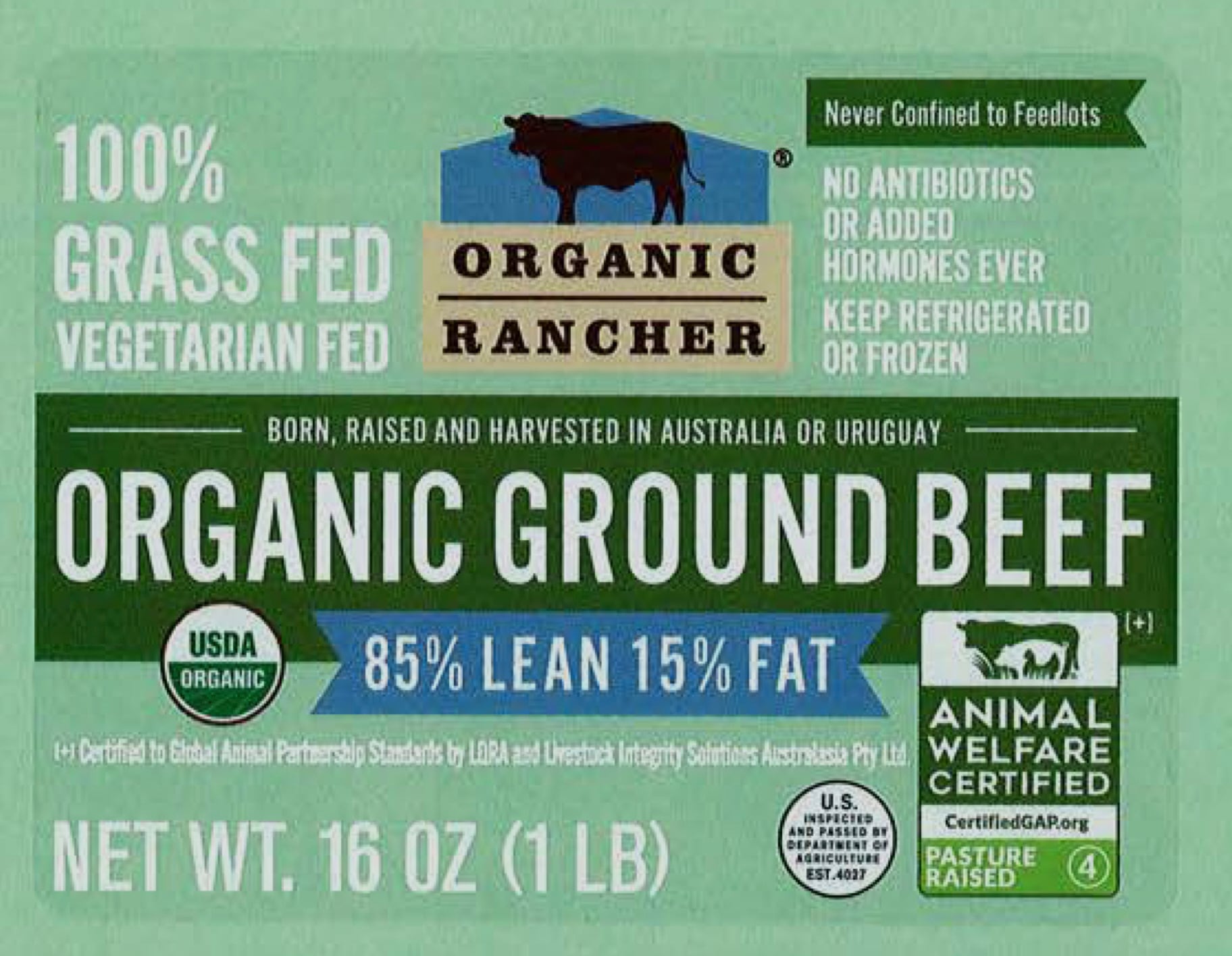U.S. agriculture officials are warning that ground beef sold at Whole Foods markets nationwide may be contaminated with potentially dangerous E. coli bacteria.
Officials on Tuesday issued a public health alert for 1-pound, vacuum-packed packages of Organic Rancher beef, produced on May 22 and May 23, by NPC Processing Inc., of Shelburne, Vermont. The products have use-by dates of June 19 and June 20.
The U.S. Food Safety and Inspection Service did not request a recall because the products are no longer available for purchase. However, they may still be in consumers’ refrigerators or freezers.
The meat was produced in Australia or Uruguay and processed in the U.S. It was sent to distributors in Connecticut, Georgia, Illinois and Maryland and then to Whole Foods stores nationwide. The problem was discovered when company officials notified FSIS that they had shipped beef products that tested positive for E. coli O157:H7, a type of bacteria that can cause serious illness.
To date, no illnesses linked to the product have been reported, officials said. Consumers who have the product should throw it away or return it to the store.
E. coli bacteria can cause infections with symptoms that include dehydration, diarrhea and cramps. Most people recover within a week, but some people can become severely ill and develop a dangerous kidney condition. Children under age 5 and older adults are most at risk.
___
The Associated Press Health and Science Department receives support from the Howard Hughes Medical Institute’s Science and Educational Media Group and the Robert Wood Johnson Foundation. The AP is solely responsible for all content.









